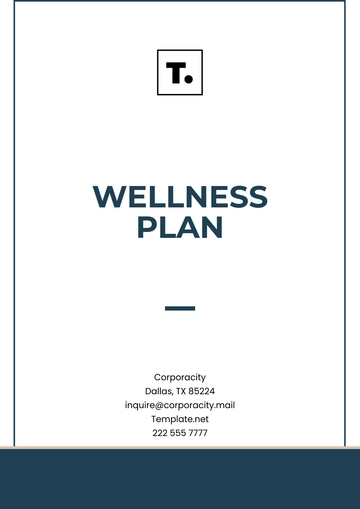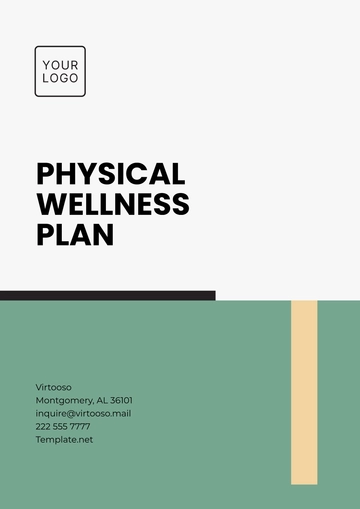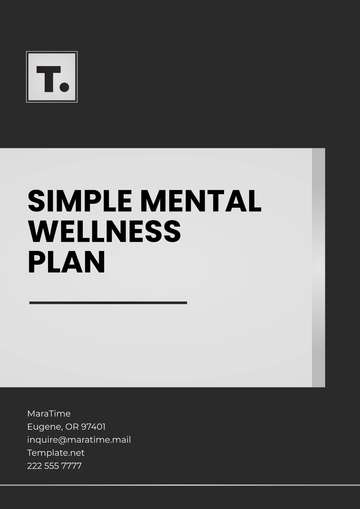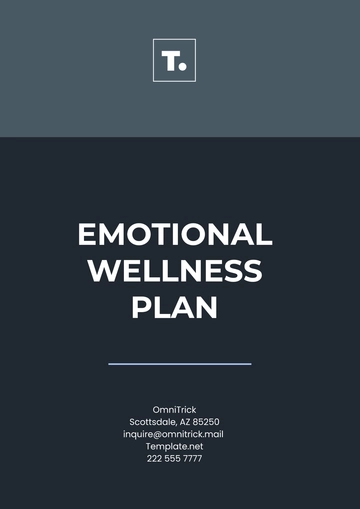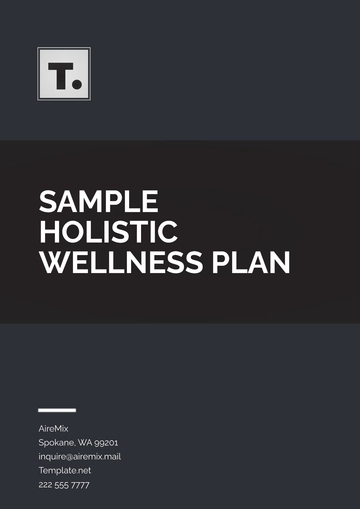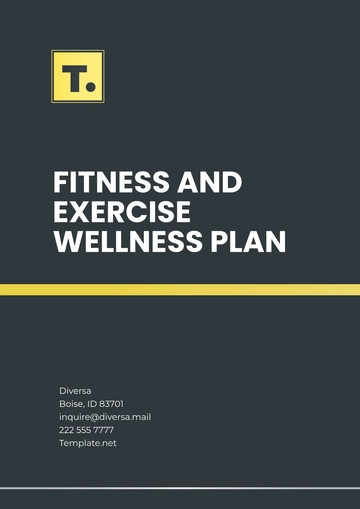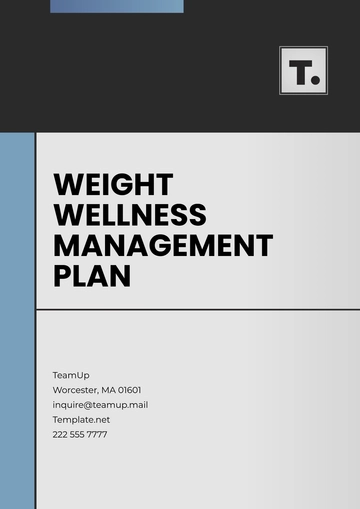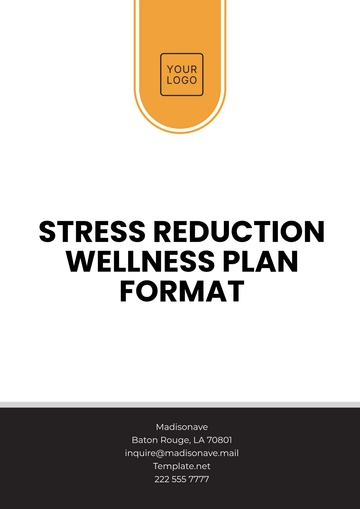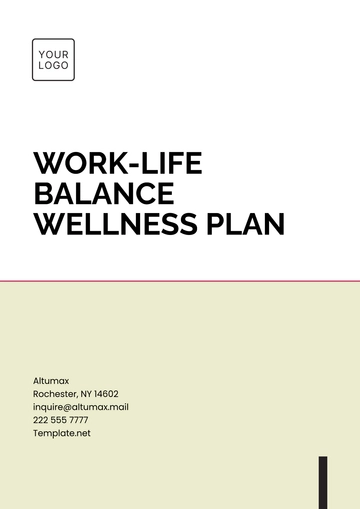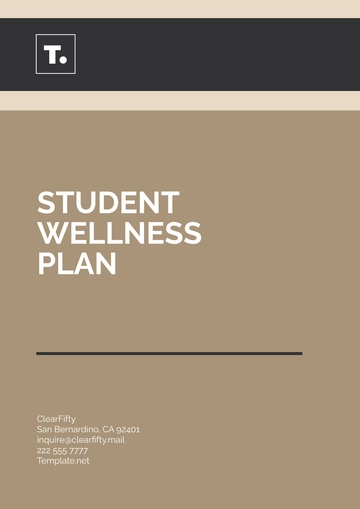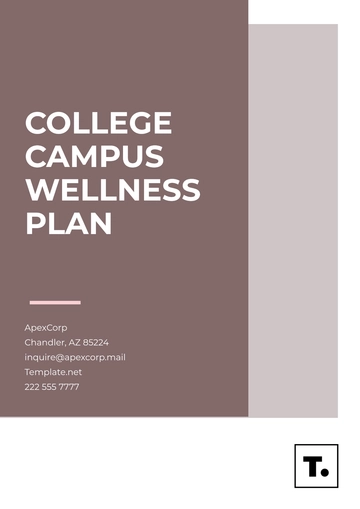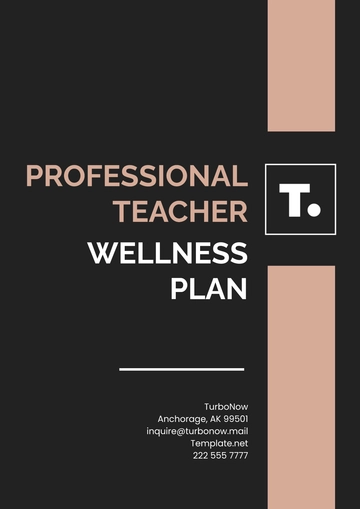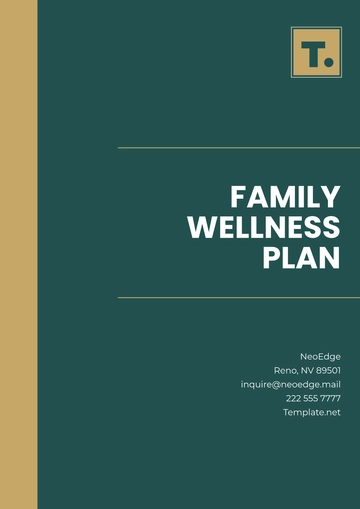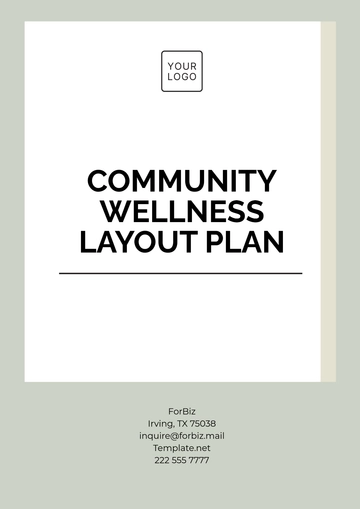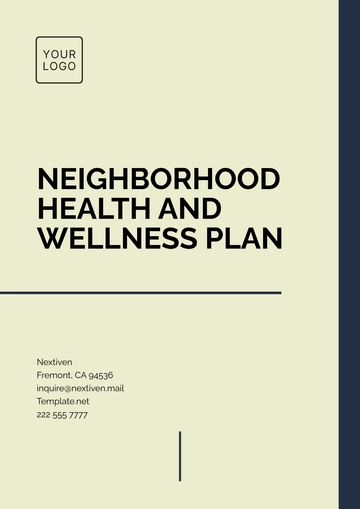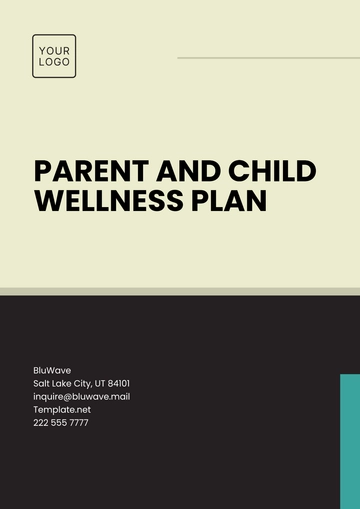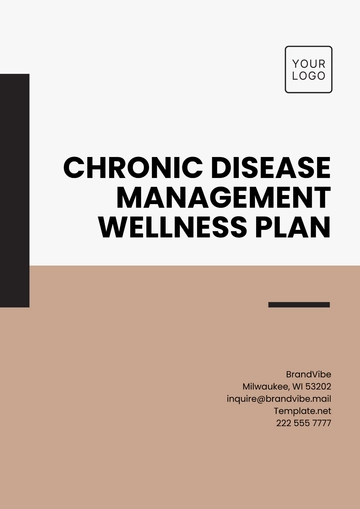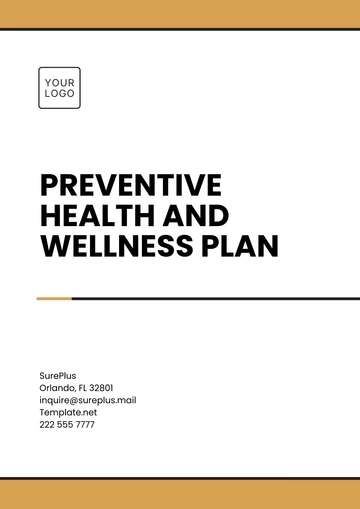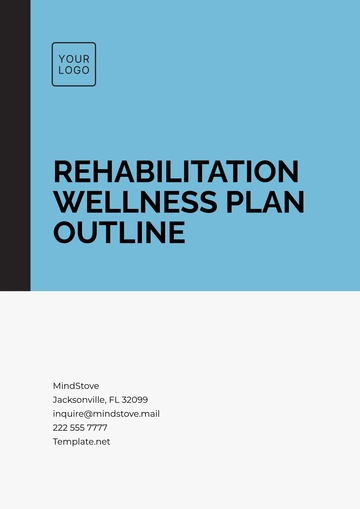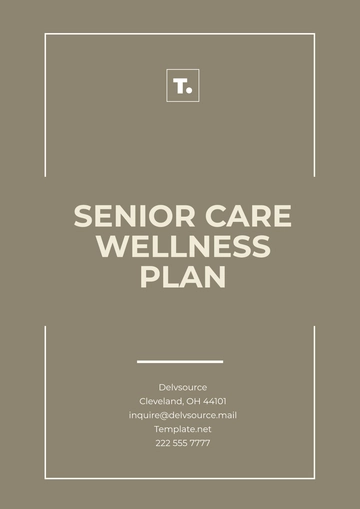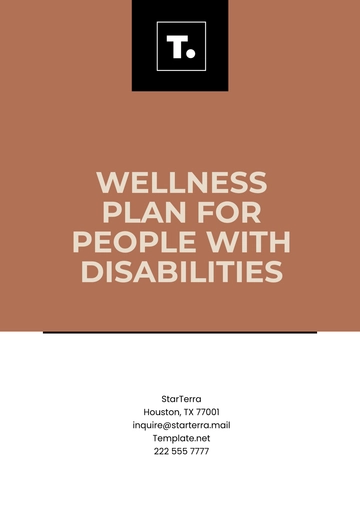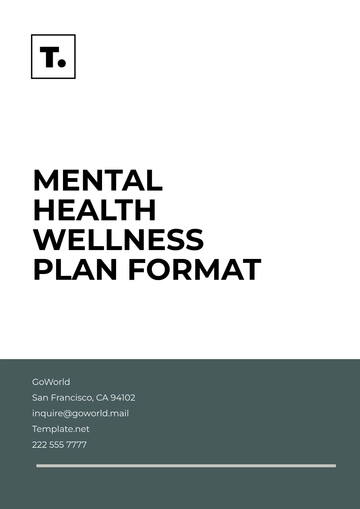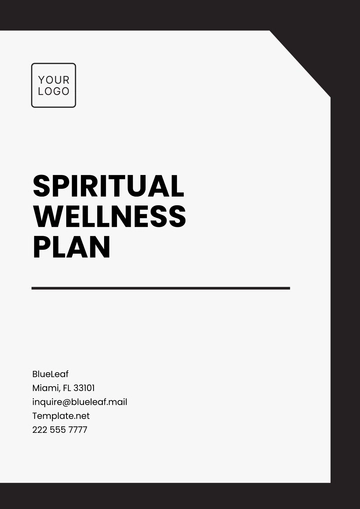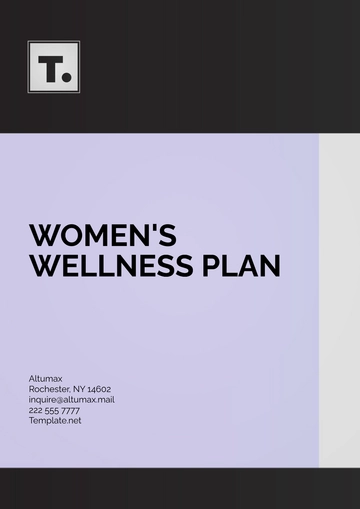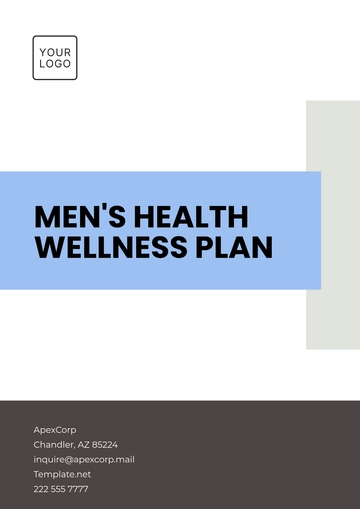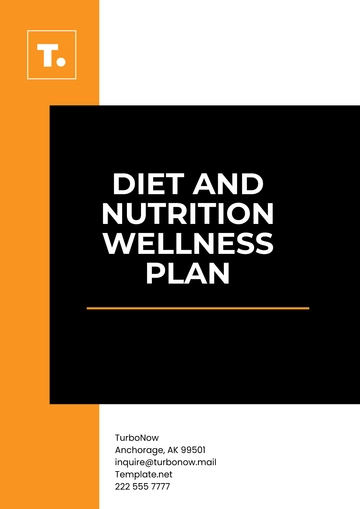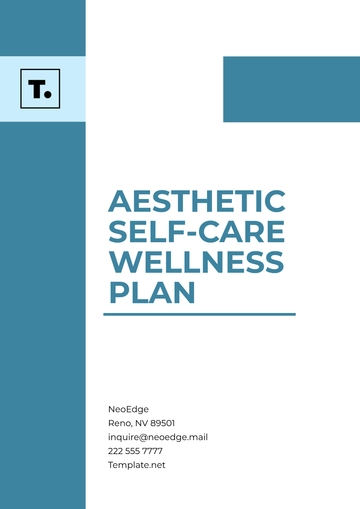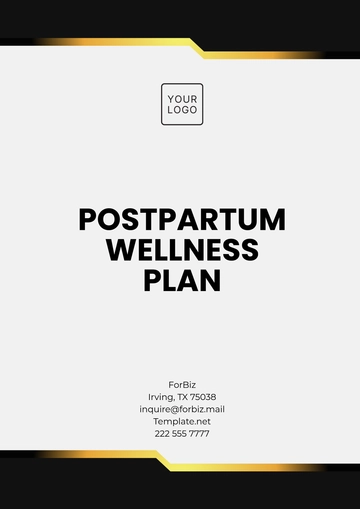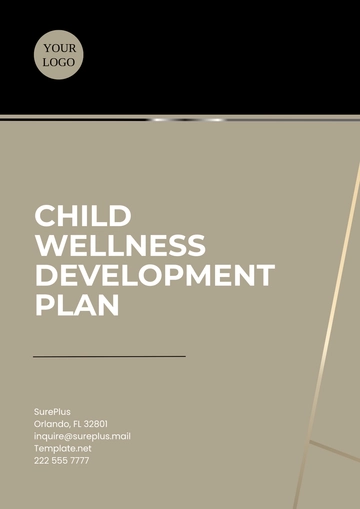Free Heart Health Wellness Plan
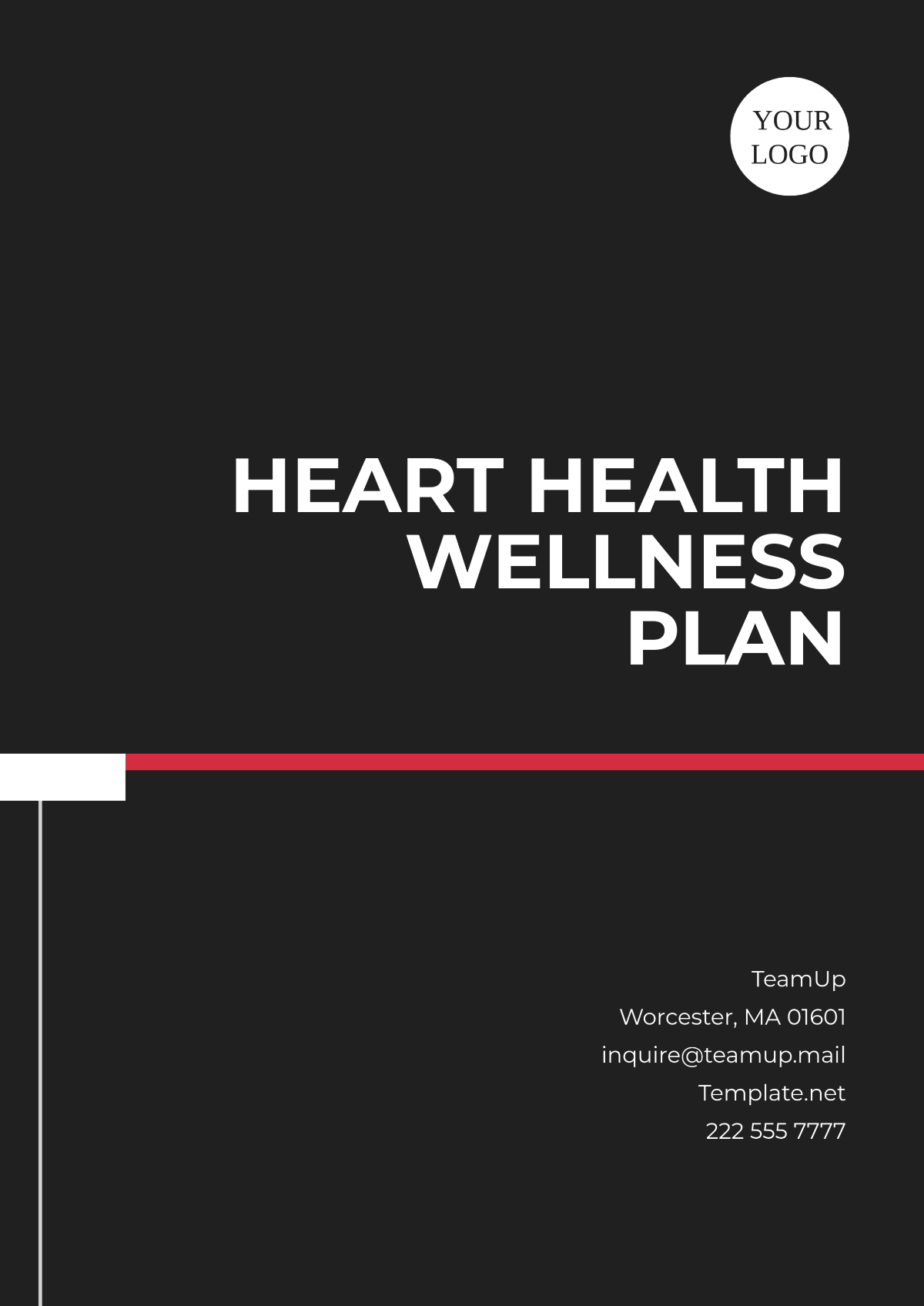
Prepared by: [Your Name]
Company: [Your Company Name]
Date: [Insert Date]
I. Introduction
Heart health is a crucial aspect of overall well-being and is essential for longevity. Cardiovascular diseases, including heart disease, stroke, and high blood pressure, are the leading causes of death worldwide. However, many heart conditions are preventable through lifestyle changes, including healthy eating, regular physical activity, stress management, and routine health check-ups. This Heart Health Wellness Plan is designed to help individuals adopt habits that promote a healthy heart and reduce the risk of cardiovascular diseases. It incorporates diet, exercise, mental wellness, and medical management to maintain optimal heart health.
II. Objectives
Maintain a Healthy Heart:
Encourage habits that help reduce the risk of heart disease and improve cardiovascular health.Promote Healthy Eating:
Guide individuals toward a heart-healthy diet that includes nutrient-dense foods and reduces harmful fats, salt, and sugar intake.Increase Physical Activity:
Incorporate regular physical activity to strengthen the heart and improve overall fitness.Manage Stress and Mental Wellness:
Develop strategies for managing stress and promoting emotional well-being to protect heart health.Monitor and Improve Risk Factors:
Provide guidelines for managing blood pressure, cholesterol levels, blood sugar, and weight to reduce cardiovascular risk.Support Regular Health Check-ups:
Encourage regular medical check-ups to monitor heart health and address any concerns proactively.
III. Key Components of the Plan
A. Heart-Healthy Diet
Strategies:
Consume Heart-Healthy Foods:
Focus on foods rich in fiber, vitamins, and antioxidants, such as fruits, vegetables, whole grains, and legumes.
Include healthy fats like omega-3 fatty acids from sources like salmon, flaxseeds, and walnuts.
Incorporate lean protein sources like chicken, turkey, tofu, and legumes.
Opt for low-fat dairy products or plant-based alternatives.
Choose heart-healthy oils like olive oil or avocado oil for cooking.
Limit Saturated and Trans Fats:
Avoid trans fats and limit saturated fats from processed and fried foods, red meat, and full-fat dairy products.
Choose healthier fat sources like nuts, seeds, and fatty fish to replace unhealthy fats.
Reduce Sodium Intake:
Limit sodium intake to no more than 2,300 mg per day (or 1,500 mg for those with hypertension or other risk factors).
Avoid processed and canned foods, which are often high in sodium.
Use herbs, spices, and lemon to flavor foods instead of salt.
Limit Added Sugars:
Minimize the consumption of sugary beverages, sweets, and processed foods.
Replace sugary snacks with fresh fruits, unsweetened yogurt, or small servings of nuts.
Eat a Balanced, Portion-Controlled Diet:
Aim to fill half of your plate with vegetables, one-quarter with lean protein, and one-quarter with whole grains.
Practice mindful eating and pay attention to portion sizes to avoid overeating.
B. Physical Activity and Exercise
Strategies:
Engage in Aerobic Exercise:
Aim for at least 150 minutes of moderate-intensity aerobic exercise per week, such as walking, cycling, or swimming.
Alternatively, engage in 75 minutes of vigorous-intensity exercise, such as running or brisk jogging.
Strength Training:
Include muscle-strengthening exercises, such as weightlifting or bodyweight exercises, at least twice a week.
Strength training helps improve cardiovascular health by increasing lean muscle mass and metabolism.
Daily Movement:
Incorporate daily movement into your routine, such as taking the stairs, walking during lunch breaks, or using a standing desk.
Aim to reduce prolonged periods of sitting, as inactivity can negatively impact heart health.
Monitor Heart Rate During Exercise:
Maintain a target heart rate zone during exercise (usually 50-85% of maximum heart rate) to ensure you are challenging your cardiovascular system.
Use a fitness tracker or heart rate monitor to stay within this zone.
C. Stress Management and Mental Wellness
Strategies:
Practice Mindfulness and Relaxation:
Incorporate mindfulness practices such as meditation, deep breathing exercises, and progressive muscle relaxation to manage stress.
Use apps or guided meditations to support daily mindfulness practice.
Engage in Physical Activities that Reduce Stress:
Activities like yoga, tai chi, or walking in nature are proven to reduce stress and improve heart health.
Find an activity that you enjoy and make it a regular part of your routine.
Develop Healthy Sleep Habits:
Aim for 7-9 hours of quality sleep each night to allow the body to rest and recover.
Maintain a consistent sleep schedule and create a relaxing bedtime routine.
Seek Support:
Reach out to friends, family, or a mental health professional for emotional support when needed.
Consider joining a support group if you experience stress, anxiety, or depression that impacts heart health.
D. Medical Monitoring and Risk Factor Management
Strategies:
Monitor Blood Pressure:
Maintain blood pressure at or below 120/80 mmHg.
If blood pressure is high, follow your doctor’s advice for managing it, which may include medication, lifestyle changes, and stress management.
Cholesterol Management:
Aim for a total cholesterol level below 200 mg/dL, LDL cholesterol under 100 mg/dL, and HDL cholesterol above 60 mg/dL.
Increase intake of heart-healthy fats and fiber to help lower bad cholesterol (LDL) and raise good cholesterol (HDL).
If necessary, take prescribed medications to control cholesterol levels.
Control Blood Sugar:
Maintain a healthy blood sugar level, especially for individuals at risk for or living with diabetes.
Consume a balanced diet and exercise regularly to help regulate blood sugar levels.
Get regular screening for diabetes if you are at risk.
Maintain a Healthy Weight:
Aim for a healthy body mass index (BMI) between 18.5 and 24.9.
Focus on long-term weight management through a combination of a healthy diet and regular exercise.
Limit Alcohol Consumption:
If you consume alcohol, do so in moderation (up to one drink per day for women and two drinks per day for men).
Excessive alcohol intake can contribute to high blood pressure and other heart issues.
E. Preventive Health Check-ups
Strategies:
Annual Health Check-ups:
Schedule annual check-ups with a healthcare provider to monitor heart health and address any potential risks early.
Get regular screenings for cholesterol, blood pressure, blood sugar, and heart disease.
Heart-Related Screenings:
Consider additional heart screenings if you have a family history of heart disease or other risk factors.
These may include an electrocardiogram (EKG), echocardiogram, or stress test to assess heart function.
Vaccinations:
Stay up to date on recommended vaccinations, such as the flu vaccine, pneumonia vaccine, and any others your doctor suggests.
Vaccinations can help prevent complications, especially for individuals with heart conditions.
IV. Monitoring and Evaluation
A. Key Performance Indicators (KPIs)
Blood Pressure Control:
Keep blood pressure within the recommended range of less than 120/80 mmHg.
Cholesterol Levels:
Maintain total cholesterol under 200 mg/dL, LDL below 100 mg/dL, and HDL above 60 mg/dL.
Weight Management:
Maintain a healthy BMI and body composition.
Physical Activity:
Achieve at least 150 minutes of aerobic exercise per week.
Dietary Adherence:
Follow a heart-healthy diet with a focus on plant-based foods, lean proteins, and healthy fats.
B. Evaluation Methods
Monitor key health metrics, including blood pressure, cholesterol, and blood sugar levels, at regular intervals.
Track progress through a fitness or health app to stay accountable to goals.
Regular check-ins with healthcare providers to assess progress and adjust the plan as needed.
V. Conclusion
A comprehensive Heart Health Wellness Plan emphasizes the importance of a balanced lifestyle, including a heart-healthy diet, regular physical activity, stress management, and medical monitoring. By adopting these practices, individuals can significantly reduce their risk of cardiovascular diseases, enhance their overall health, and enjoy a higher quality of life. Regular check-ups and proactive care are essential for long-term heart health.
- 100% Customizable, free editor
- Access 1 Million+ Templates, photo’s & graphics
- Download or share as a template
- Click and replace photos, graphics, text, backgrounds
- Resize, crop, AI write & more
- Access advanced editor
You may also like
- Finance Plan
- Construction Plan
- Sales Plan
- Development Plan
- Career Plan
- Budget Plan
- HR Plan
- Education Plan
- Transition Plan
- Work Plan
- Training Plan
- Communication Plan
- Operation Plan
- Health And Safety Plan
- Strategy Plan
- Professional Development Plan
- Advertising Plan
- Risk Management Plan
- Restaurant Plan
- School Plan
- Nursing Home Patient Care Plan
- Nursing Care Plan
- Plan Event
- Startup Plan
- Social Media Plan
- Staffing Plan
- Annual Plan
- Content Plan
- Payment Plan
- Implementation Plan
- Hotel Plan
- Workout Plan
- Accounting Plan
- Campaign Plan
- Essay Plan
- 30 60 90 Day Plan
- Research Plan
- Recruitment Plan
- 90 Day Plan
- Quarterly Plan
- Emergency Plan
- 5 Year Plan
- Gym Plan
- Personal Plan
- IT and Software Plan
- Treatment Plan
- Real Estate Plan
- Law Firm Plan
- Healthcare Plan
- Improvement Plan
- Media Plan
- 5 Year Business Plan
- Learning Plan
- Marketing Campaign Plan
- Travel Agency Plan
- Cleaning Services Plan
- Interior Design Plan
- Performance Plan
- PR Plan
- Birth Plan
- Life Plan
- SEO Plan
- Disaster Recovery Plan
- Continuity Plan
- Launch Plan
- Legal Plan
- Behavior Plan
- Performance Improvement Plan
- Salon Plan
- Security Plan
- Security Management Plan
- Employee Development Plan
- Quality Plan
- Service Improvement Plan
- Growth Plan
- Incident Response Plan
- Basketball Plan
- Emergency Action Plan
- Product Launch Plan
- Spa Plan
- Employee Training Plan
- Data Analysis Plan
- Employee Action Plan
- Territory Plan
- Audit Plan
- Classroom Plan
- Activity Plan
- Parenting Plan
- Care Plan
- Project Execution Plan
- Exercise Plan
- Internship Plan
- Software Development Plan
- Continuous Improvement Plan
- Leave Plan
- 90 Day Sales Plan
- Advertising Agency Plan
- Employee Transition Plan
- Smart Action Plan
- Workplace Safety Plan
- Behavior Change Plan
- Contingency Plan
- Continuity of Operations Plan
- Health Plan
- Quality Control Plan
- Self Plan
- Sports Development Plan
- Change Management Plan
- Ecommerce Plan
- Personal Financial Plan
- Process Improvement Plan
- 30-60-90 Day Sales Plan
- Crisis Management Plan
- Engagement Plan
- Execution Plan
- Pandemic Plan
- Quality Assurance Plan
- Service Continuity Plan
- Agile Project Plan
- Fundraising Plan
- Job Transition Plan
- Asset Maintenance Plan
- Maintenance Plan
- Software Test Plan
- Staff Training and Development Plan
- 3 Year Plan
- Brand Activation Plan
- Release Plan
- Resource Plan
- Risk Mitigation Plan
- Teacher Plan
- 30 60 90 Day Plan for New Manager
- Food Safety Plan
- Food Truck Plan
- Hiring Plan
- Quality Management Plan
- Wellness Plan
- Behavior Intervention Plan
- Bonus Plan
- Investment Plan
- Maternity Leave Plan
- Pandemic Response Plan
- Succession Planning
- Coaching Plan
- Configuration Management Plan
- Remote Work Plan
- Self Care Plan
- Teaching Plan
- 100-Day Plan
- HACCP Plan
- Student Plan
- Sustainability Plan
- 30 60 90 Day Plan for Interview
- Access Plan
- Site Specific Safety Plan
